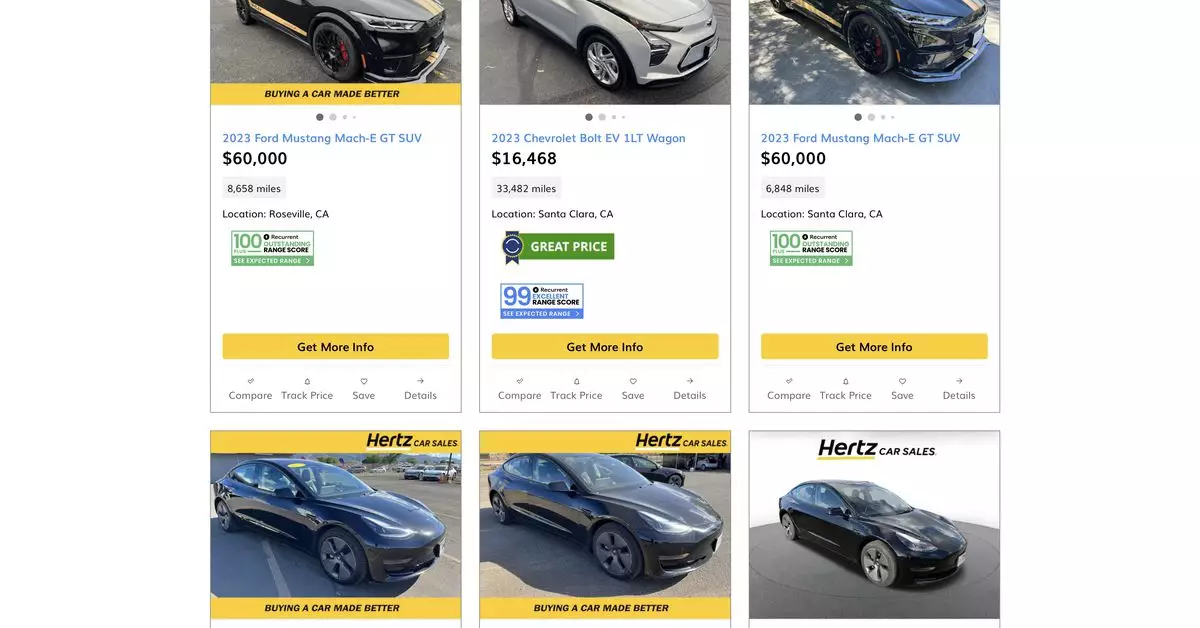In a notable shift within the electric vehicle (EV) rental market, Hertz is redefining its approach by providing enticing purchase options for renters. This strategy aims to attract customers by allowing them to buy rental electric vehicles at competitive prices instead of returning them. Such a tactic could redefine customer loyalty and engagement, signaling a proactive response to the evolving consumer desires for sustainable transportation options.
The offers presented by Hertz have garnered attention, particularly among the EV enthusiast community. For instance, a recent Reddit post detailed how a renter of a 2023 Tesla Model 3 was offered a purchase price of approximately $17,913. This figure seems competitive when compared to the current listings on Hertz’s car sales website, especially considering the rental vehicle had accumulated around 30,000 miles—relatively lower mileage than many other pre-owned listings. Similarly, renters of other electric models, such as the Chevy Bolt and the Polestar 2, reported offers of $18,442 and $28,500 respectively. These offerings suggest that Hertz aims to strike a balance between affordability and the residual value of their rental fleet.
Interestingly, the used electric vehicles come with a limited powertrain warranty that spans 12 months or up to 12,000 miles. This warranty is poised to alleviate concerns renters might have about purchasing a vehicle that has already been on the road. Additionally, the option for a buy-back within a week provides an extra layer of security, ensuring that buyers have flexibility should they change their minds. Such assurances can boost consumer confidence, potentially driving more renters to consider purchasing their EVs.
A Broader Market Strategy
Jamie Line, Hertz’s communications director, clarified that this initiative is part of a broader strategy rather than a special promotion for electric vehicles. By integrating their rental services with sales channels, Hertz not only aims to bolster awareness of their vehicle sales but also to create a bridge for renters who are contemplating a purchase. Essentially, this enables Hertz to potentially convert short-term rentals into long-term ownership, adding value to their overall business model.
Hertz’s strategy comes in light of prior setbacks in its electrification efforts. The company had initially planned to expand its electric vehicle offerings aggressively but faced challenges such as low consumer demand and repair complications—most notably with Tesla’s Model 3. Additionally, Hertz’s announcement to cease acquiring Polestar 2 vehicles indicates a strategic retreat aligned with their ongoing evaluation of the EV market’s viability.
Hertz’s new direction in offering purchase options for electric vehicle renters reflects an adaptive strategy in a rapidly changing automotive landscape. As consumer interest in sustainable transportation grows, this initiative not only addresses current market needs but also paves the way for Hertz to strengthen its position within the EV rental sector. By balancing competitive pricing, warranties, and robust customer engagement, Hertz may very well lead the charge in transforming how consumers perceive and access electric vehicles.


Leave a Reply